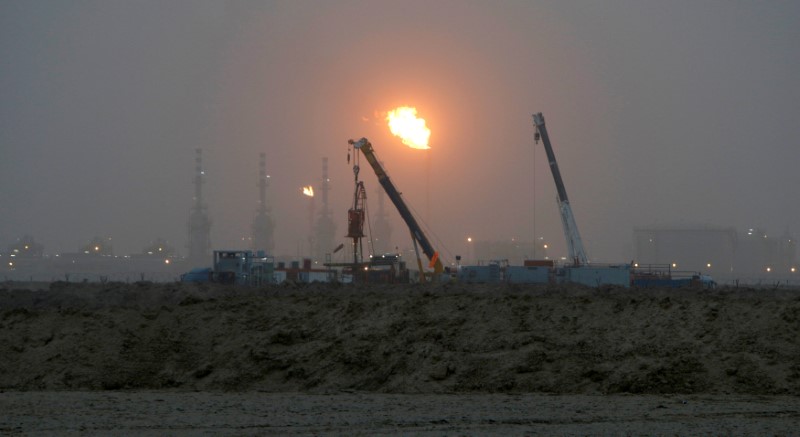By Eileen Soreng
(Reuters) - Oil analysts are not convinced that OPEC's proposal to cut output for the first time since 2008 will result in much higher prices, as doubts run high over the feasibility of the group's decision, a Reuters poll showed on Friday.
The 32 analysts and economists surveyed cut their 2016 average Brent (LCOc1) price outlook to $44.74 a barrel from the $45.44 forecast in August, the second straight downward revision after successive upgrades in the five preceding surveys.
Brent, which has averaged $43.34 this year, was forecast at$57.28 a barrel in 2017 as against the previous outlook of $57.90.
"We are pessimistic about the chances of a comprehensive deal being reached at OPEC's November meeting due to a history of reluctance from producers to agree to, or adhere to individual output quotas," Morgan Stanley (NYSE:MS) analyst Ashley Petersen said.
In an informal meeting in Algiers last month, OPEC agreed to reduce output to a range of 32.5-33.0 million barrels per day, in a bid to end the "production war" that has caused a supply glut and led to an over 50-percent slump in prices since mid-2014.
The cartel is likely to seek support from non-OPEC members like Russia ahead of its next formal meeting in late November, when it is expected to make a decision on production quotas for its member countries.
Energy ministers from Saudi Arabia, Iran and Iraq will be among representatives of key OPEC producers meeting with Russia for informal talks next week on the sidelines of a major energy conference in Istanbul.
"The biggest stumbling block in the whole process is going to be whether they can get all countries to agree upon quota levels," said FirstEnergy Capital analyst Martin King.
"It has been a sticky point for the cartel in the last couple of years."
Supply from OPEC has risen to 33.60 million bpd in September from a revised 33.53 million bpd in August, according to a survey based on shipping data and information from industry sources.
Oversupply is expected to continue presenting challenges for the market since inventories have risen to multi-year highs in numerous locations, said Giorgos Beleris, analyst at Thomson Reuters Oil Research and Forecasts.
A rebalancing before mid-2017 was unlikely, even though global demand could increase by over 1 million bpd next year, analysts said.
"We expect any gains in a freeze scenario will be quickly reversed as production will be frozen at very high levels, thus still leaving the market with excess supply, which only pushes back further into late 2017 the prospect of a rebalancing in the oil market," BNP Paribas (PA:BNPP) Global Head of Commodity Markets Strategy Harry Tchilinguirian said.
The poll forecast U.S. light crude (CLc1) will average $43.49 a barrel in 2016 and $55.46 in 2017, compared with the $41.69 average this year.

Morgan Stanley had the lowest 2016 forecast for Brent at $42 a barrel, while Bernstein and ABN Amro had the highest at $50.